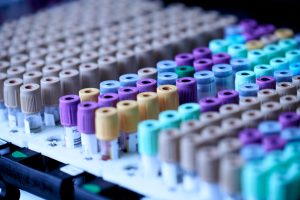Many approaches to addiction treatment tend to focus on the addict themselves while the family takes a back seat. Those who work directly with the family members of addicts understand the extent of the problem. They see how the family keeps the addict sick, both in and out of active addiction.
At the same time, most family members focus on the addict as the source of the turmoil. They see the stressful environment that addiction creates and believe the addict is the real problem. Unless prompted, many family members never consider how their own behaviors affect the family environment.
Unfortunately, codependency can be just as harmful as addiction. Though someone with addiction instigates the problems, someone with codependency prolongs them. The two conditions are closely related yet independent of each other at the same time. True healing of the addict comes only with unraveling codependency and healing the family as a whole.
Understanding Codependency
The term codependency has taken on new meanings over the decades since its introduction. Today you’ll find it used to describe people with any sort of trouble developing an individual, life independent of another person. At its root, though, codependency describes the behavior patterns displayed by the partners and family members of addicts and alcoholics.
Codependency was first used in the 1980s when looking at the traits of spouses, children, and siblings of a person with chemical dependency issues. Some family members developed their own problematic characteristics in response to the addict or alcoholic. These behaviors became their own standalone problem, independent of the chemical dependency problem.
At its most basic, codependency is a relationship imbalance between a person and their addict or alcoholic loved one. It’s a deep-rooted response to the chaos and unpredictability of addiction that develops over time. Key characteristics of codependency include:
- Making excuses for the addict
- Regularly “bailing them out” (ex. socially, financially)
- Extreme engrossment in the addict’s life
- Trying to control the addict’s behaviors or decisions
- Neglecting their own well being for the sake of the addict
- Having blurry or weak boundaries (with the addict in particular)
Family members who struggle with codependency usually have very little sense of individuality. Their identity is tied up in what they see as taking care of the addict. In reality, they’re only enabling the addict’s continued substance abuse and delaying their need to seek help.
6 Family Roles in Addiction
One common understanding of the family’s part in the problem is the 6 family roles in addiction. Each person takes on a particular role that helps them cope with the difficulties of living with an addict. This understanding is crucial when determining how the family keeps the addict sick.
At the same time, not all family members develop codependency in response to the addict in their life. Some move in the complete opposite direction and all but reject the addict. The caretakers tend to be the family member that displays codependent traits. Jesters and scapegoats usually lack the overdependent traits that are characteristic of codependency.
Still, when unraveling codependency to determine how the family keeps the addict sick, it’s helpful to understand these roles. Each family member plays a part in the sickness of the addict as well as their eventual healing.
But differentiating the family members that struggle with codependency is the most crucial part as the addict seeks recovery.
Codependency Still Exists in Recovery
The biggest reason codependency keeps the addict sick is that it still exists after the addict is in recovery. The chemically dependent loved one may cut the drugs and alcohol from their life but codependent traits aren’t as easy to shed. Codependency becomes a set of ingrained behaviors over time. The struggling family member has their own work to do.
People with codependent traits tend to miss this main point, though. They believe their behavior is only a result of the addict and is no fault of their own. If the addict gets well then their problem will go away. But that’s far from being the case.
Even after someone stops drinking and using drugs, the codependent behaviors continue. The family member is still hyper-aware, overly involved, and obsessive. If they don’t start to unravel their codependent tendencies, they’ll either keep their loved ones sick or push them away.
Effective addiction treatment understands the independence of codependency and addiction. Programs like Emerge Recovery encourage each member of the family to find the willingness to do their own work. Until they realize the extent of the problem, they’ll continue exacerbating the problem.
Emerge Recovery understands how crucial it is that the family heal together so long-term recovery is possible. If you want to learn more about healing the family unit as a whole during addiction recovery, reach out today!












